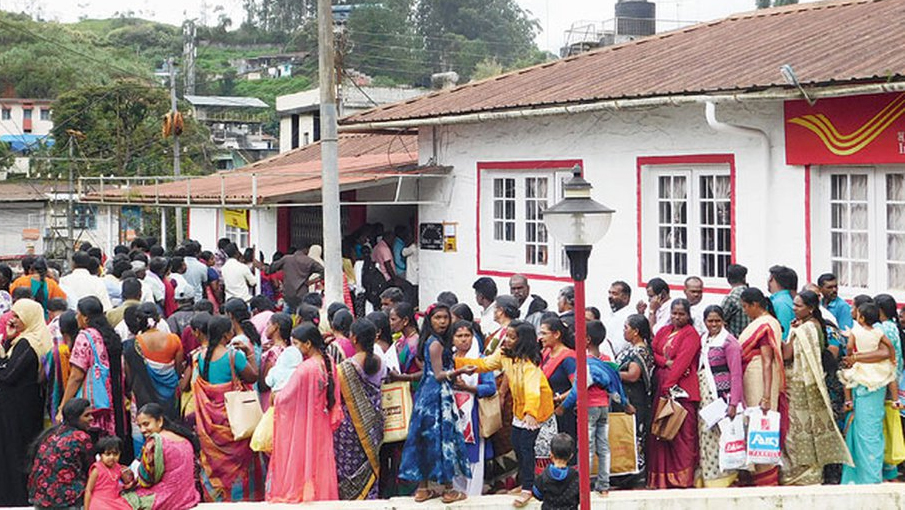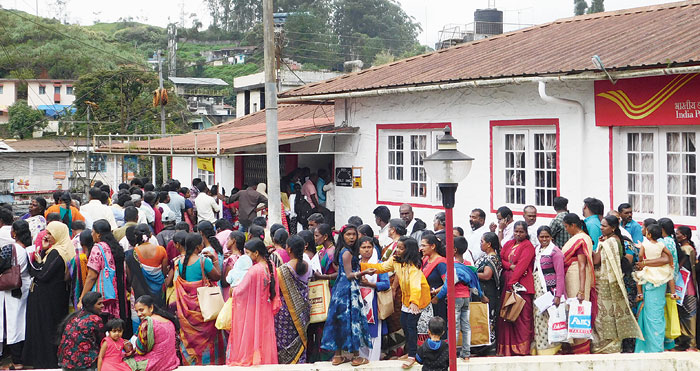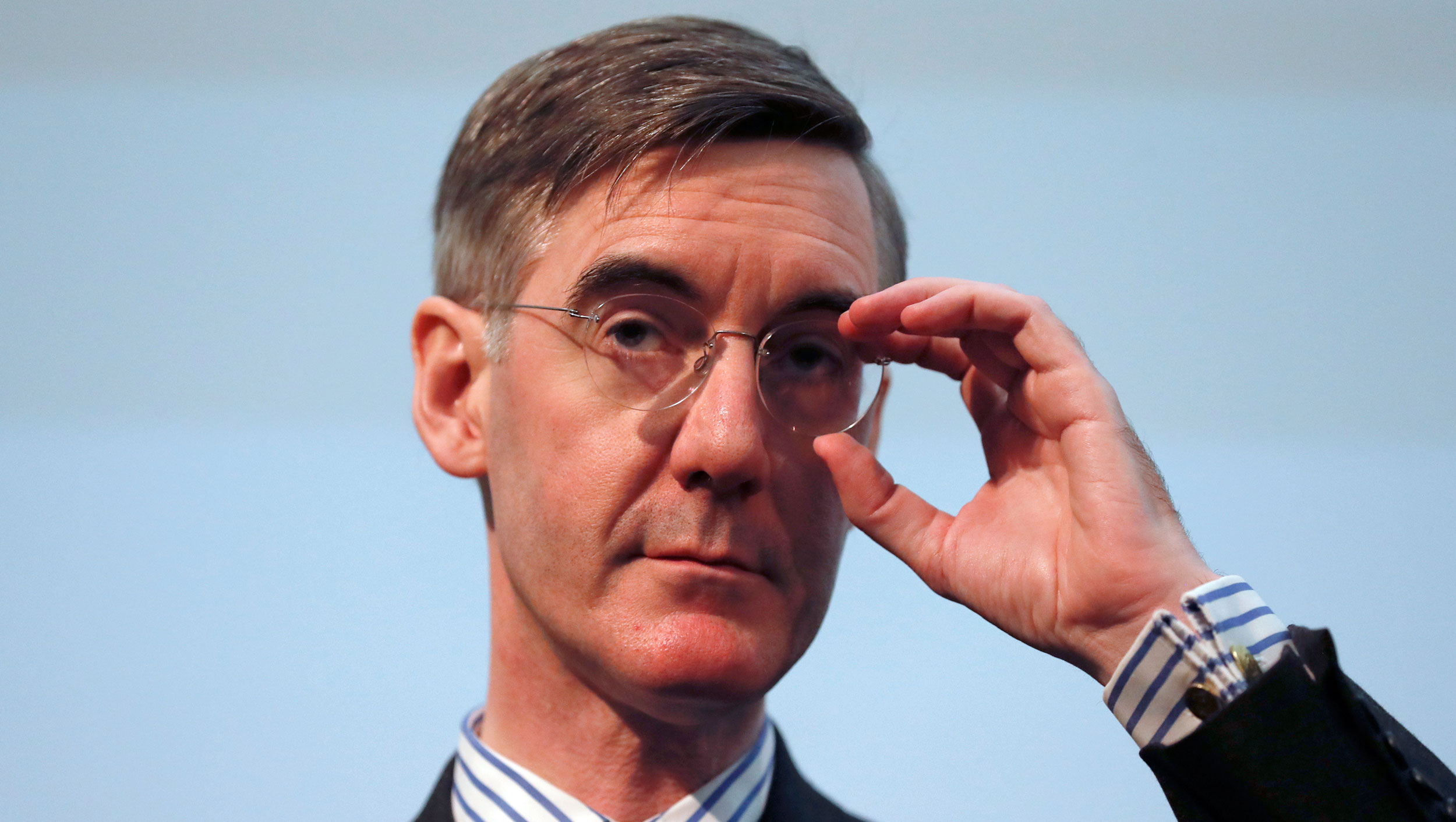Sir — The photograph of the long queues of people outside the post office in Munnar waiting to open savings accounts on the basis of a rumour was quite telling. The same thing could have happened in any other part of the country as well if the same rumour had been spread there (“It’s still out there, Mr Modi”, Aug 2). Apparently, a WhatsApp message created the impression that an amount of Rs 15 lakh — Narendra Modi had, in a 2014 pre-election speech, promised that each Indian would receive that sum if black money stashed abroad were brought back to India — would be credited to people who opened accounts with the India Post Payments Bank. This bank was launched by Modi last September as a house-to-house banking service under the postal department.
This incident reveals a lot about the mindset of Indian citizens. First, it shows the hold that greed has over people. The latter often believe that they are entitled to large sums of money without actually having worked for it. Second, it shows how quickly a single rumour can sway sizeable populations, and the ease with which they can be tricked into believing something that is most likely untrue.
One wonders how anyone could have believed Modi’s pre-poll rhetoric about depositing Rs 15 lakh into the bank accounts of all Indians. Yet, a large section of the population bought into it. Even though Amit Shah, the Bharatiya Janata Party president — he is, at present, also the Union home minister — admitted that Modi’s promise was merely ‘idiomatic’, people failed to recognize it as a clever ploy to garner votes. This is evident in the fact that so many people in Munnar thronged to the post office to open accounts even though Shah had made it clear that nobody is actually going to be getting any money.
Kajal Chatterjee,
Calcutta
Sir — The news report about the people outside the Munnar post office was accompanied by a photograph of the serpentine queues. While some might question the citizens’ blind belief that they will receive the sum of Rs 15 lakh that Narendra Modi promised them, I cannot find fault with it. A large section of the population consists of labourers and daily wage earners — the postmaster, K. Murugaiah, clarified that most of the people who opened accounts were poor plantation workers — and they were made a promise by the leader of their country. Can they be blamed for believing his words? As prime minister, after all, he is expected to tell the truth. Some might even consider it disloyal to disbelieve the claims of someone who holds such a high post. It was the duty of the post office to devise effective ways to clear up the misunderstanding. Although it did try to clarify its position, it seems to have failed.
Ajay Kumar Deb Biswas,
Hooghly
Sir — Narendra Modi’s promise — made in 2014 — of Rs 15 lakh for every Indian if black money comes back to India is still fresh in public memory. A WhatsApp message prank asking people to open an account with the IPPB if they wanted to receive the promised sum caused a mad rush for the Munnar post office. The harried post master tried his best to convince the people who had lined up outside that no such sum would be disbursed by the Centre, but the crowds did not pay heed to his warning.
It is worth remembering that Modi’s 2014 campaign pitch about the Rs 15 lakh deposit had become an issue in Kerala — where the BJP did not win a single seat — for the 2019 general elections. According to the news report, the former superstar, Suresh Gopi, who contested the polls on a BJP ticket and is now a Rajya Sabha member, had claimed that Modi had merely “assessed” that the amount could be deposited into bank accounts if black money were brought back. What is to be noted, however, is that a promise made in 2014 still makes people, especially the poor, hopeful. It is the BJP’s job to clear the air for citizens.
T.K. Nandanan,
Kochi
Sir — One can only imagine the plight of the postmaster and employees of the Munnar bank, who had to open about 1,400 accounts with the IPPB in five days. The volume of work they had to handle shows how deeply rumours spread on digital platforms can affect the lives of people.
Sayantan Roy,
Calcutta
Behind the times
Sir — It is well known that language and its usage change over time. But the new leader of the House of Commons, Jacob Rees-Mogg, does not seem to know that, as is evident from the stringent rules he laid down for written communication by civil servants who work in his office, including a list of words that they are banned from using. One wonders what Rees-Mogg thinks of the colourful expressions that his superior, the British prime minister, Boris Johnson, often uses. His belief that there should be a return to “imperial measurements” — miles instead of kilometres and pounds instead of kilogrammes — is incongruent with times we live in.
P.T. Mallik,
Calcutta
Sir — Jacob Rees-Mogg’s choice of words that can no longer be used in official communication to him is illuminating. The British politician abhors ‘hopefully’; how can he not given the messy state of affairs in a Britain where all hope seems lost? Further, it is hardly surprising that a man who voted against equal marriages several times would dislike the word ‘equal’. Last, but not least, his frown at the excessive use of the personal pronoun, ‘I’, must stem from the narcissistic company he keeps.
Nandini Banerjee,
Calcutta













